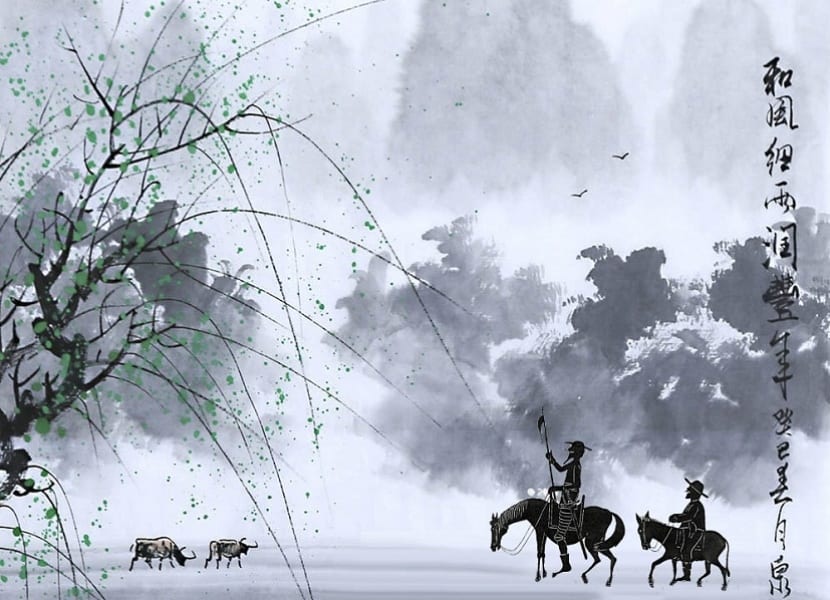This post should have been opened by a video of some young Chinese reading Don Quixote, but unfortunately the video was removed. So this from the EFE Agency on the reading of Don Quixote in Rome is worth to illustrate what I want to tell.
We are not surprised that Cervantes's work is read in Europe or America, even in the Middle East and the Maghreb. But ... how far has Don Quixote come in his weakling Rocinante? Well, even China came the Knight of the Sad figure.
Four years ago I was working in the library of the Cervantes Institute in Beijing when one afternoon, shortly before closing, an elderly man came to show me a book. It was one of the first editions of Don Quixote to be printed in China during Mao's time and the truth is that it was really curious to see our crazy knight between Chinese characters.
It should be noted that Don Quixote did not arrive in China until 1922, translated from English under the title moxiazhuan (Biography of the mad gentleman), although only the first part was published since until the 40s Chinese scholars did not know of the existence of a second part.
After the founding of the new China by Mao in 1949, the government attached great importance to cultural development and in 1955 the Chinese government celebrated the 350th anniversary of the publication of Don Quixote, which is why a full translation was published.

However, it was not until 1995 when the Hispanist Dong Yansheng translated it for the first time in its entirety and directly from Spanish into Mandarin Chinese.
Curiosities of a difficult translation
One of the main problems with translations is precisely the cultural differences between countries. So we have to Mountain of the soul, one of the latest milestones in Chinese literature, is an exciting read in its mother tongue, but when translated into Spanish it becomes tedious and slow. Or so I have been assured.
Translating is a difficult task and doing it with Don Quixote was not an easy task. However, as stated by its translator Dong Yansheng:
The problem is solved using words with approximate reference. For example, tunic and calza, garments that do not even exist in modern Spain, but it is always possible to find names that serve to refer to a garment without buttons that covers the trunk of the body in the first case and to two linked fabric tubes somehow tightly wrap the legs in the second. Or inventing new words, which is easily done in Chinese, which is a flexible language with words of few syllables.
Although he recognizes that the most difficult thing in the case of Cervantes is to be able to transmit in the Chinese version the peculiar rhythm of Cervantes prose, with light baroque airs and full of synonyms.
Chance or premonition? Curious at least
If you open El Quijote for the second part and you begin to read the Dedication to Count Lemos, you will soon see the following in the first paragraph:
And the one who has shown to desire him the most has been the great emperor of China, because in the Chinese language there will be a month that he wrote me a letter with his own, asking or rather begging me to send it to him, because he wanted to found a school where it could be read the Castilian language and he wanted the book to be read to be by Don Quixote. Along with this he told me that I was to be the rector of such a school.
The sense of humor of Miguel de Cervantes is evident from the dedications in both parts, but in this case it is still curious to see that five centuries after this joke, the Quijote is one of the 30 compulsory readings for Chinese high school students and that, indeed, there is a Spanish teaching center called Instituto Cervantes that has a headquarters in Beijing.
And it is that although late, the great Chinese civilization fell surrendered to the idealism, the sense of humor and the pure sense of justice and goodness that our most illustrious gentleman displayed.
- Illustration by Manel Ollé, sinologist at Pompeu Fabra University.